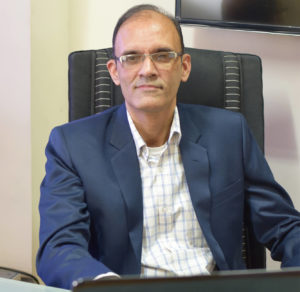- +91 9920132979 / +91 9322866643
- [email protected]
Bills keep flowing to us in an endless stream. These continue throughout our lives, though the expense items themselves & how much we spend on various heads can change.
Ensuring We Have Enough Money
We need money for expenses & various goals we have in life. Our income during the working period allows us to take care of the expenses then, our goals in the future as well as ongoing expenses throughout life.
The number of years we can work is finite – say 35 years. Many people want to retire by age 45/ 50. This decreases the working life further.
A person retiring early, say 50, will have to provide for expenses for about 40 years, instead of 30 years, had he chosen to retire at 60. This is a very long period for which to provide. The corpus requirement will be huge. And that corpus would now be needed earlier, as one may be retiring by
50.
Income Is Not Wealth
Many people think that a good income is their passport to a good life. While income does play an important role, expenses play an even greater role. Keeping expenses under control is very important. When expenses are unbridled, even the advantage of a good income cannot help in creating wealth to take care of future needs.
Many people are of the view that increasing income will help them build wealth. While there may be some truth in that, it can work only when expenses are reined in. For most people, when income increases, expenses move in tandem as aspirations also float up. In fact, in many cases, there are quite a few things which are already lined up if new money becomes available. In such a scenario, an income increase does not translate into increased savings.
How Many Days of Expenses Are You Saving?
When income is high and expenses are equally high, the savings & investment possible gets hit.
For instance, if Tara is earning Rs.3.5 Lakhs a month & her family is spending Rs.3 Lakhs a month, her savings can be about Rs.50,000 pm. Now, take the case of Pandurang who is earning Rs.1.5 Lakhs & spends Rs.1 Lakh and manages to save Rs.50,000
The amounts saved by both are the same. But, it is going to work very differently in their cases.
Tara is saving the equivalent of six days of expenses but Pandurang is saving the equivalent of fifteen days of expenses. Tara has to save much more as he burn-rate is far higher than Pandurang. We cannot hence be happy about the absolute sums that we save. We need to see how many days of expenses it can cover.
This will vary over the earning cycle of a person. In the initial years, it will be low as the income itself is low and there are too many items of expenditure. In the later years, it will have to catch up. After fifty, the amount a person saves should be well over 100% of what they spend in a month.
Going by this metric too, the lower the expenses, the easier it gets for a person to save so that they can meet more days of expenses. Whichever way one looks at it, expense control becomes important.
Ensuring Wealth Building
One of the primary ways in which one can build wealth is by keeping the
lifestyle expenses low, in the initial portion of the lives. This is what most people find difficult to implement, as they are looking for the good things in life – now!
The way that works well is to increase the lifestyle gradually over time so that it does not dent one’s saving potential and does not exert any pressure financially.
The best way would be to start building a liquidity/ contingency corpus early on. The focus should be to build an investment base right from the beginning. Such investments also offer the cushion to fall back on, in case of any need.
It is after doing this, one should incrementally increase the lifestyle. It makes sense to stay a couple of rungs below what one can afford so that one is not under any money pressure. I know I’m not endearing myself to anyone by saying this as a professional financial planner – but it’s important!
Income Cannot Be Increased at Will
There is another school of thought. This school does not believe in decreasing expenses or controlling expenses. They are of the opinion that income should be increased to support the lifestyle & consequent expenses. They aver that such an approach makes a person ambitious & goads him to put his best in the job.
There is some merit in the approach. The flaw is that if the expenses are floating up, up & away, no amount of income can help. We have seen that in our financial advisory practice.
The other important thing to note is that it is not always possible to increase the income beyond a certain point. Also, the higher one goes in terms of income, the more difficult it is to find a replacement job at even higher income levels. Also, at very high-income levels, one becomes more vulnerable to redundancies as the cost to the company is very high. One needs to be truly good at work to be able to keep the job.
It is hence a high-risk gambit to aggressively keep looking for jobs that pay higher and higher income with total disregard for expenses.
A Metric to Remember in Retirement
Most people would want to have a well-funded retirement. They would also want to give gifts to their children, grandchildren & others as well as leave a legacy.
A very simple metric to ensure one is spending within limits is to see if the income in the retirement phase is above the expenses in that phase. The ratio that will hence to watch out for is – ( Income in the retirement phase ) / Expenses.
If this ratio is above one at all times during the retirement phase ( based on your projected income/expenses ), it means one is not dipping into the corpus. This will mean that they are well funded and will be able to leave a legacy as well.
However, if the ratio is below one and is coming down over time, it means that one is dipping into the capital pool for expenses. If for instance, the ratio is 0.8, it means one is dipping into the capital to the extent of 20% to meet the expenses.
There is nothing wrong with dipping into capital too, as long as the capital can last the entire lifetime of the couple. But, if the couple lives for long and the corpus gets exhausted, it is serious trouble.
Living too long is indeed a reality today. People are living into their nineties. Also, the dwindling corpus may not leave much to give away as a legacy.
Hence, finances should be dealt with carefully and expenses are indeed at the very core of ensuring a well-funded life. Expenses are indeed the most important piece to focus attention on.
Keep this in mind and your financial plan will work well indeed!

